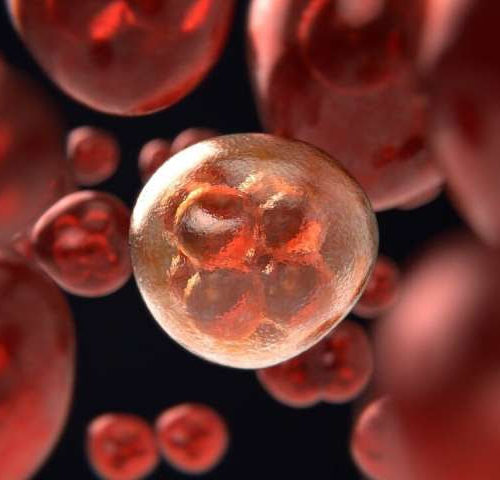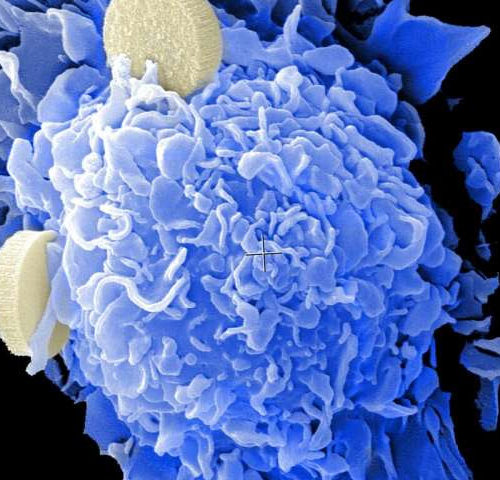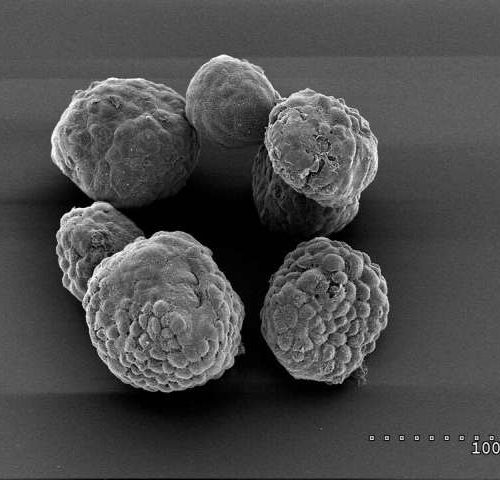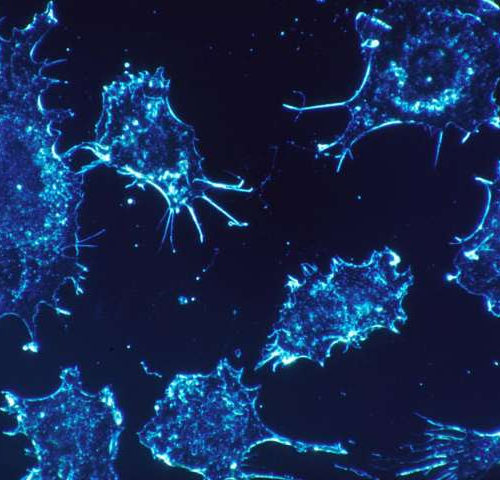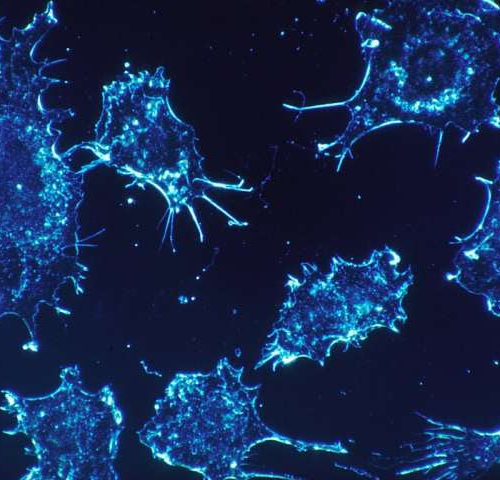by Bob Yirka , Medical Xpress A team of researchers working at Memorial Sloan Kettering Cancer Center in New York has discovered how metastatic cancer is able to survive in the hostile subarachnoid space. In their paper published in the journal Science, the group describes RNA sequencing studies they conducted with patients with leptomeningeal metastases...
Tag: <span>cancer cells</span>
Study finds fatty acid that kills cancer cells
by Washington State University Researchers have demonstrated that a fatty acid called dihomogamma-linolenic acid, or DGLA, can kill human cancer cells. The study, published in Developmental Cell on July 10, found that DGLA can induce ferroptosis in an animal model and in actual human cancer cells. Ferroptosis is an iron-dependent type of cell death that...
Drug treatment could improve effectiveness of immunotherapy for cancer patients
PROVIDENCE, R.I. [Brown University] — While immunotherapy — a form of treatment that uses the body’s immune system to recognize, attack and kill tumor cells — has given hope to people across the globe, it fails in a significant proportion of cancer patients. However, a new study published in the Nature journal Cell Death Discovery...
Blocking cholesterol storage could stop growth of pancreatic tumors
by Cold Spring Harbor Laboratory Organoids of mouse pancreatic tumor cells grown “ex vivo,” outside the body. Organoids are used as a model system to study tumor biology and treatments. Credit: Tobiloba Oni, Tuveson lab/CSHL Scientists at Cold Spring Harbor Laboratory (CSHL) have found that they can stop the growth of pancreatic cancer cells by...
Researchers find more precise way to target tumours with anti-cancer drugs
by Adrianna MacPherson, University of Alberta Researchers at the University of Alberta have found a way to deliver anti-cancer drugs with more precision, which could increase the effectiveness of many cancer treatments. U of A oncologist Frank Wuest altered the surface of nanoparticles, which are well suited to deliver drugs, with epidermal growth factor (EGF),...
How cancer drugs find their targets
In the watery inside of a cell, complex processes take place in tiny functional compartments called organelles. Energy-producing mitochondria are organelles, as is the frilly golgi apparatus, which helps to transport cellular materials. Both of these compartments are bound by thin membranes. But in the past few years, research at Whitehead Institute and elsewhere has...
NUS researchers uncover a novel protein which drives cancer progression
PRINT E-MAIL Cancers arise when the genetic code of normal cells is altered, causing excessive growth. Researchers from the Cancer Science Institute of Singapore (CSI Singapore) at the National University of Singapore (NUS) have discovered a protein that drives the growth of cancers of the esophagus or liver by altering the genetic code in a...
Focused ultrasound shows promise against deadliest brain tumor
UNIVERSITY OF VIRGINIA HEALTH SYSTEM NEUROSURGEON JASON SHEEHAN, MD, PHD, OF UVA HEALTH, IS PIONEERING THE USE OF FOCUSED ULTRASOUND TO TREAT GLIOBLASTOMA, THE DEADLIEST BRAIN TUMOR.view more CREDIT: UVA HEALTH An innovative use of focused ultrasound being pioneered at the University of Virginia School of Medicine is showing promise against glioblastoma, the deadliest brain...
Researchers destroy cancer cells with ultrasound treatment
An international research team led by Dr. Tali Ilovitsh of the Biomedical Engineering Department at Tel Aviv University developed a noninvasive technology platform for gene delivery into breast cancer cells. The technique combines ultrasound with tumor-targeted microbubbles. Once the ultrasound is activated, the microbubbles explode like smart and targeted warheads, creating holes in cancer cells’...
A metabolic enzyme drives lymphoma and is a potential drug target
by Memorial Sloan Kettering Cancer Center Because of how aggressively they divide, cancer cells have an increased demand for building materials and energy. They meet these added demands by altering their metabolism—taking in larger amounts of fuel, for example. Historically, these metabolic changes have been considered a consequence rather than a cause of cancer, and...

